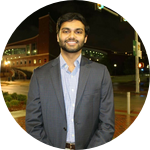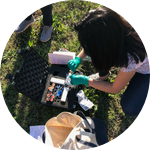About This Project
Environmental injustices differentially impact low wealth communities of color, and this pattern of inequity is evident in the 35th Avenue Superfund Site in North Birmingham, AL where residents are overburdened by cumulative hazards such as toxic air and soil. This project will use the OurVoice Discovery Tool mobile app to empower residents and advance health equity through citizen science. This is a pilot project to inform future research and community outreach.
Ask the Scientists
Join The DiscussionWhat is the context of this research?
Discriminatory racial zoning laws and environmental racism have left North Birmingham overburdened with cumulative public health hazards like toxic air and soil and the denial of basic amenities. The 35th Avenue Superfund Site in North Birmingham, Alabama was proposed for the Superfund National Priorities List (NPL) with a Hazard Ranking Score of 50 (the minimum for consideration is a 28.5). Although it was proposed for the NPL in 2014, it still has not received placement for environmental cleanup and long-term remediation. Social, racial, and economic injustices continue to drive health inequities.
What is the significance of this project?
Environmental injustices are local but often follow the same patterns: disenfranchisement and marginalization of low wealth communities of color, the absence of salutogenic infrastructure, fragmentated urban development, differential exposure to climate disasters and environmental burdens.
Science can be a powerful tool to validate these experiences, combat injustices, and build community capacity. This project will co-produce knowledge with residents to identify priorities that are immediately relevant to public health at the neighborhood-level.
What are the goals of the project?
This project will illuminate the intersections of social, racial, and economic injustices in North Birmingham by using OurVoice to document the chemical and non-chemical exposures residents continue to experience. This can include proximity to industrial facilities, air pollution, access to grocery stores, flood zones, road quality, housing quality, and other neighborhood features that may make it easier or harder to be healthy in the community. The outputs of this project will include reports of data collected by residents, community meetings with residents to discuss findings, and identification of key priorities for local policy development.
Budget
OurVoice is a citizen science empowerment initiative developed by researchers at Stanford University. The OurVoice Discovery Tool mobile app allows residents to document their lived experience of what makes it easier or harder to be healthy in their community. These categorized, captioned photographs are geotagged and then compiled into community reports. The reports are reviewed with the community to discuss advocacy actions for change. In the context of the 35th Avenue Superfund Site, the OurVoice Discovery Tool can be used as a preliminary community needs assessment to identify both chemical and non-chemical exposures at the neighborhood-level. This process will co-produce knowledge with the community and can be presented to stakeholders at multiple levels of decision-making to advocate for policy change.
This fee will allow access to the OurVoice technologies, facilitators, and support services for collaborative planning of the project.
Endorsed by
 Project Timeline
Project Timeline
Volunteer recruitment will occur in the first two weeks of March 2022. Data collection will occur over the course of one week in April by residents alongside local facilitators. These data will be consolidated into reports to be discussed with community members throughout April and May 2022.
Mar 03, 2022
Project Launched
Mar 15, 2022
Volunteer Recruitment
Apr 15, 2022
Finish Data Collection
Apr 30, 2022
Community Meeting #1
May 31, 2022
Community Meeting #2
Meet the Team
Team Bio
The Greater-Birmingham Alliance to Stop Pollution (GASP) is a 501(c)(3) nonprofit membership organization that seeks to advance healthy air & environmental justice in the greater-Birmingham area through education, advocacy, and collaboration. GASP strives to reduce air pollution, to educate the public on the health risks associated with poor air quality and to encourage community leaders to serve as role models for clean air and clean energy development.
Rose Albert
Rose Albert is the Community Science Fellow for the Greater-Birmingham Alliance to Stop Pollution. She has experience in air quality monitoring, health policy development, environmental advocacy, project management, and basic science research. She will graduate with a Bachelor of Science in Chemistry and a Master of Public Health in Environmental Health in spring 2022.
Project Backers
- 10Backers
- 100%Funded
- $5,400Total Donations
- $540.00Average Donation

